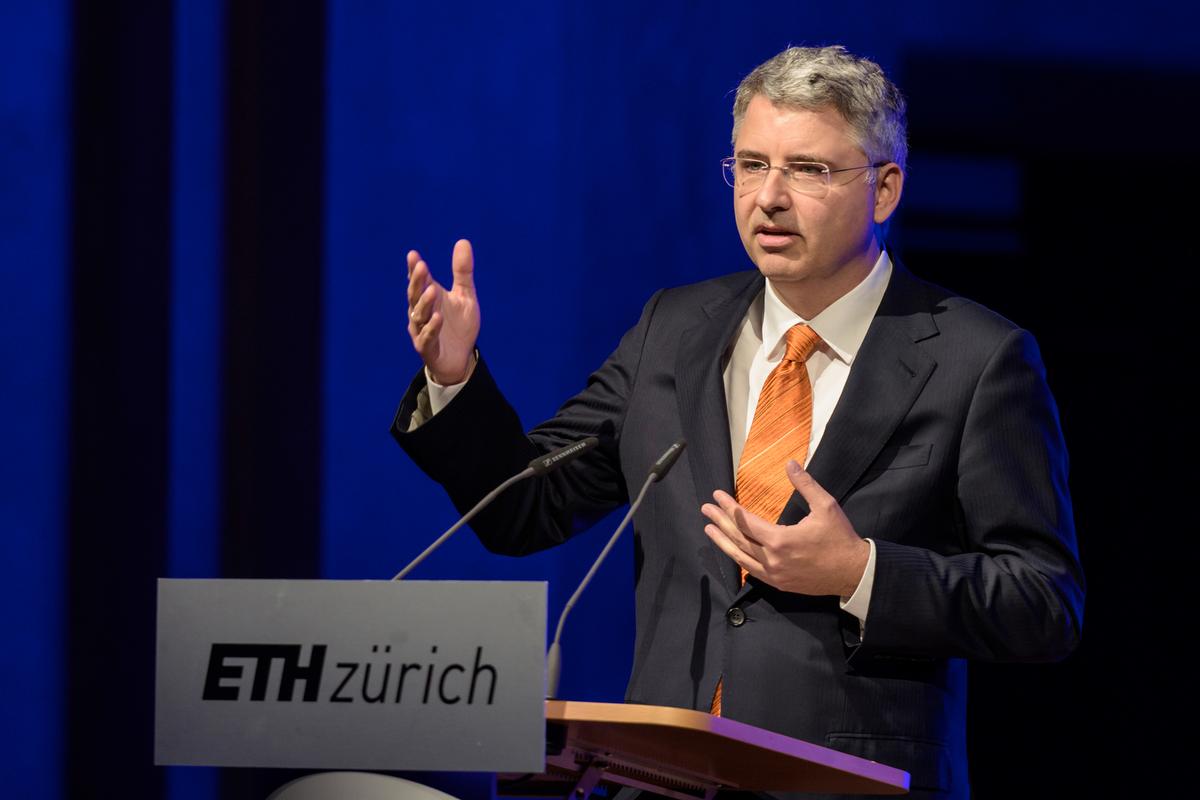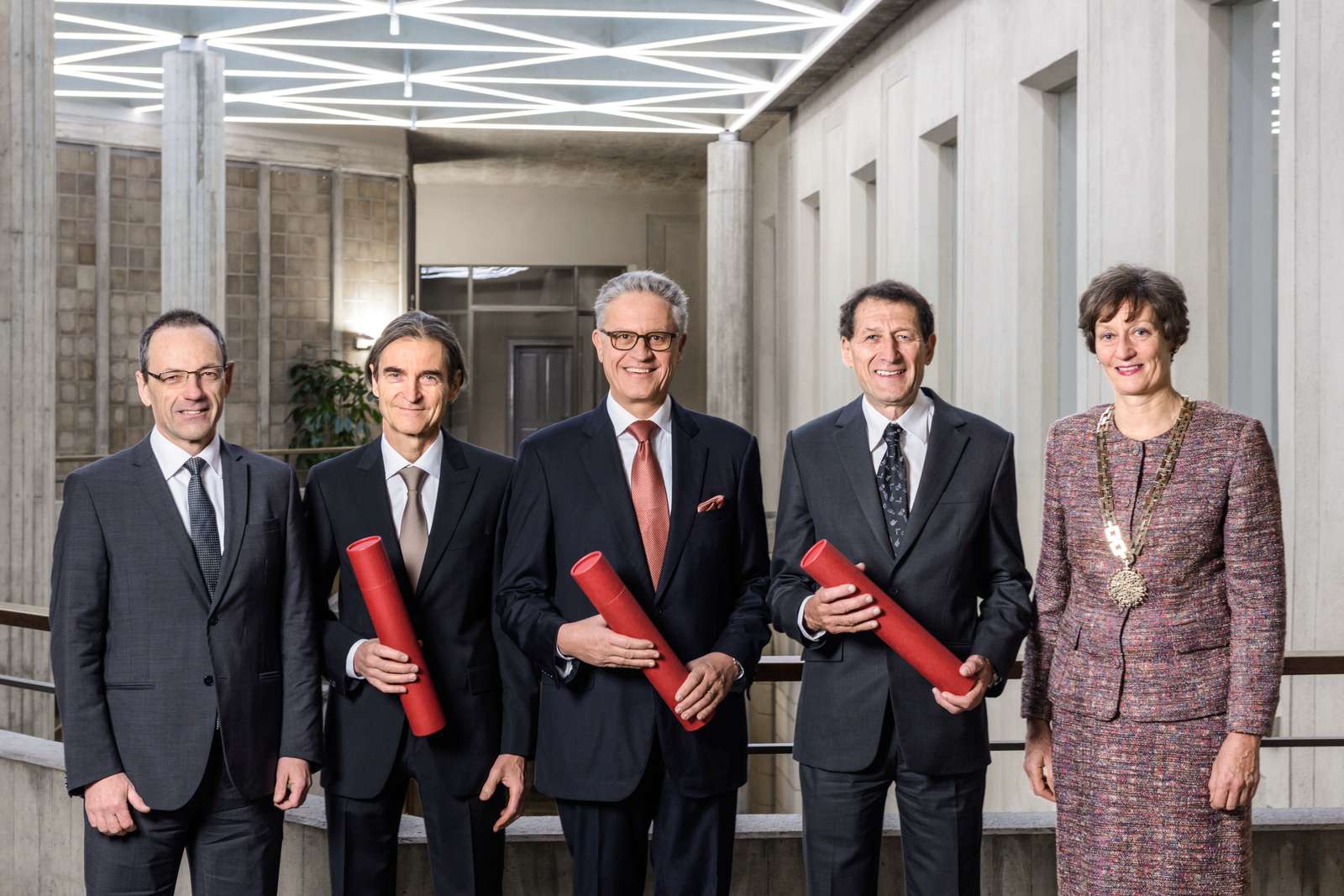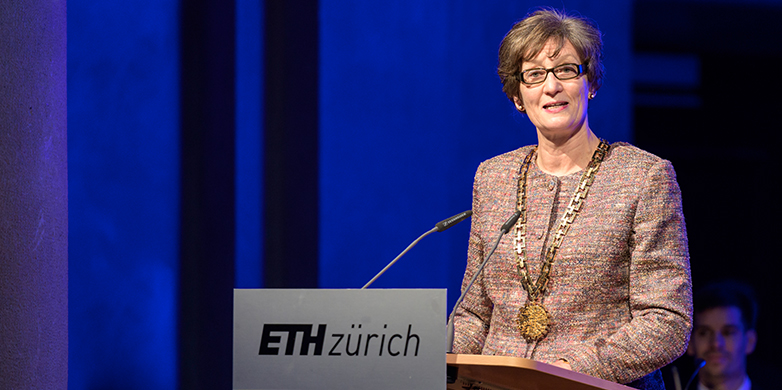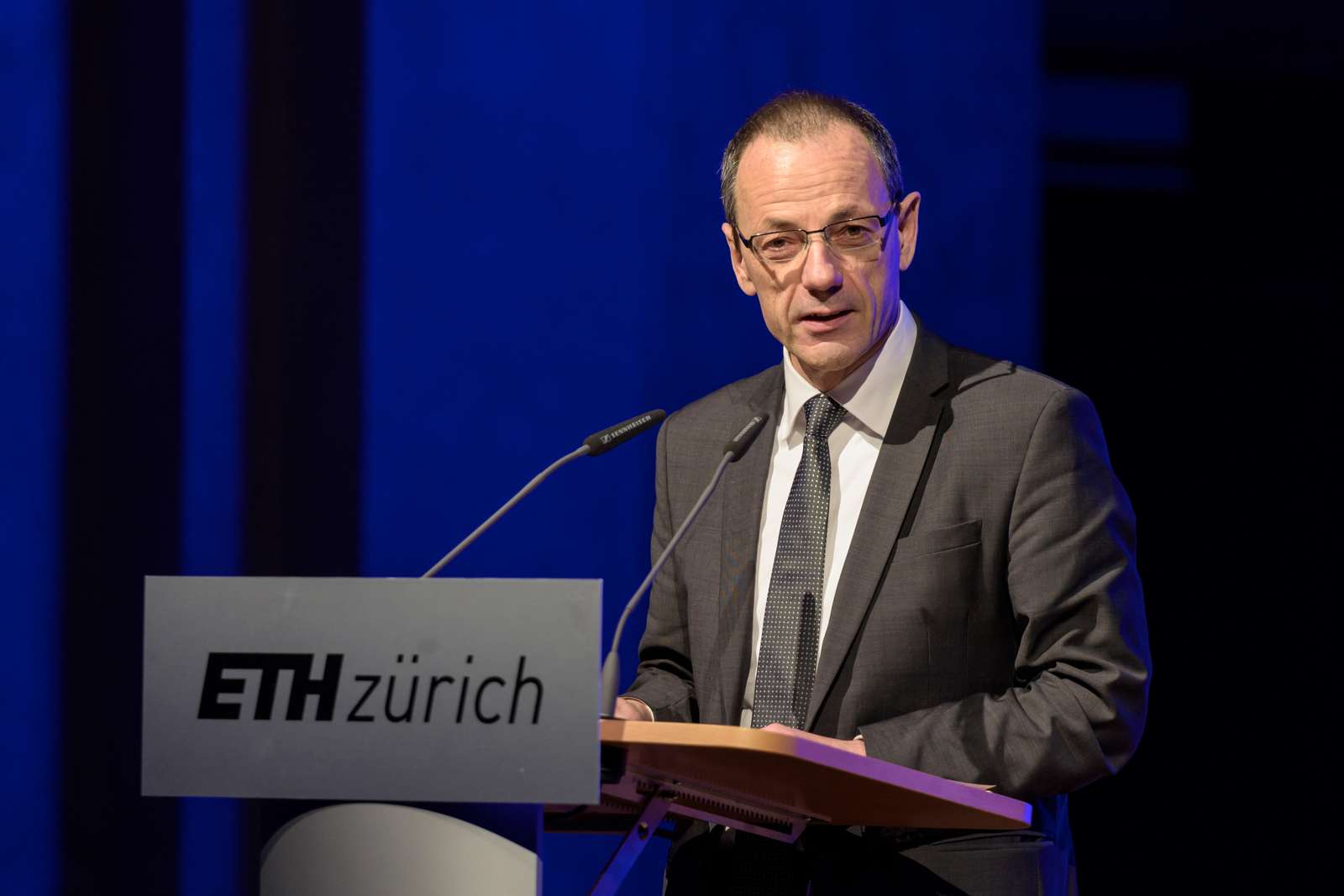The courage of one’s convictions
At ETH Day, Rector Sarah Springman explained how it is more important than ever for the university’s educational goals to draw on the ideals of the Enlightenment, and laid out the new teaching concepts that she intends to use to achieve this. In his own address, Roche CEO Severin Schwan emphasised the significance of researchers’ autonomy in a country’s capacity to innovate.
What skills and knowledge should the generation leaving ETH with their Master’s degrees in 2030 take with them? ETH Rector Sarah Springman is deeply concerned with this question. The new educational policy, introduced in 2016, clearly states that, “ETH prepares its students to shape the future as independent thinkers and as responsible members of society.” Springman’s speech cited examples such as the Manifesta pavilion and the Critical Thinking Initiative to prove that this policy is not simply a paper tiger.
Enlightenment ideals in danger
The ETH Rector appealed to the ideals of the Enlightenment, which she sees as under threat in today’s world: “Even in mature democracies, large sectors of the population are becoming estranged from the educated elites,” she says. The achievements of the Enlightenment, from the open society and minority rights to equality of opportunity for men and women, are no longer guaranteed and could slip away from us once again. This divergence, she feels, compels ETH to ensure its students possess not only a solid knowledge of their subjects, but also the ability and courage to form and voice their own opinions.
In his welcome address, ETH President Lino Guzzella engaged critically with the ever-increasing pace of academic life and its related issues. “It’s not always easy to draw the line between justified demands for transparency and the counterproductive exaggeration of results in order to court the media,” said the President. That’s why ETH Zurich is engaged in an intensive discussion about good scientific practice.
Focusing on the core business
ETH was honoured to host Severin Schwan, CEO of Roche, as this year’s speaker. Schwan stressed that Switzerland occupies a top position as a country of education and research, but also pointed out that competition is increasing from leading innovation clusters around the world. Schwan argued that educational institutions should focus on their core competences: “I’d like to make the case that Switzerland should return to the historically successful clear division between the three levels of education: universities, universities of applied sciences and vocational education”. The Roche CEO also endorsed a clear separation between pure and applied research, in which the first is adequately supported by public funds.

Schwan also addressed the successful research cooperation between ETH and Roche and explained how this allows innovations to emerge from the grassroots rather than through prescribed framework agreements. “I can't tell you how exactly innovations arise, but one thing is certain: they don’t fall like manna from heaven. They emerge from the minds of curious, creative people and highly talented researchers,” Schwan continued. In his view, this requires two simple conditions: “Firstly, you have to let these people into the country, and secondly, you then have to let them work in peace.” Researchers need enough freedom to deviate from textbook wisdom once in a while and break new ground in crazy experiments, he said.

Honorary doctorates for two bridge builders
The ETH Rector awarded an honorary doctorate to well-known climate researcher Thomas Stocker for his seminal research into climate systems and climate change, honouring a key figure in climate science. Stocker, who led the IPCC’s Working Group I from 2008 until 2015, is not merely an expert at linking together various aspects of research; he also sees it as his responsibility to build bridges between climate research, decision-makers and the general population.
The second honorary doctorate went to ETH alumnus Max Ernst Meyer, a literal bridge-builder who puts his vast imagination and drive to work as an engineer. Meyer has significantly refined the building methods employed in the construction of large prestressed concrete bridges. He has also proved his outstanding knowledge and abilities in the construction of large reservoirs and underwater tunnels, and in the area of lifting technology.
The title of Honorary Board Member is awarded to individuals who either foster key scientific activities or fields of work at ETH Zurich, or who support the university as a whole. In 2016, ETH Zurich appointed Thomas Knecht for his outstanding commitment to the promotion of innovation transfer from Swiss universities to the society and economy.
Engaged students
Part of ETH Day traditionally belongs to the students, and this year, three young talents from the Department of Earth Sciences provided an insight into their current work. Visitors were able to learn about the measurement of the Aletsch Glacier, the seismic properties of rocks and electronic distance measurement at the LISA Pathfinder project.
The Association of Students at ETH Zurich (VSETH) represents the interests of the students to the Executive Board and authorities. At ETH Day, Association president Lukas Möller presented particularly dedicated lecturers with the Golden Owl in recognition of their excellent teaching. One lecturer per department receives this student-awarded prize. In addition, John Lygeros, Professor of Control and Computation at the Automatic Control Laboratory, was awarded the 2016 Credit Suisse Award for Best Teaching.
Further documents, speeches and photos can be downloaded at: ETH Day 2016


